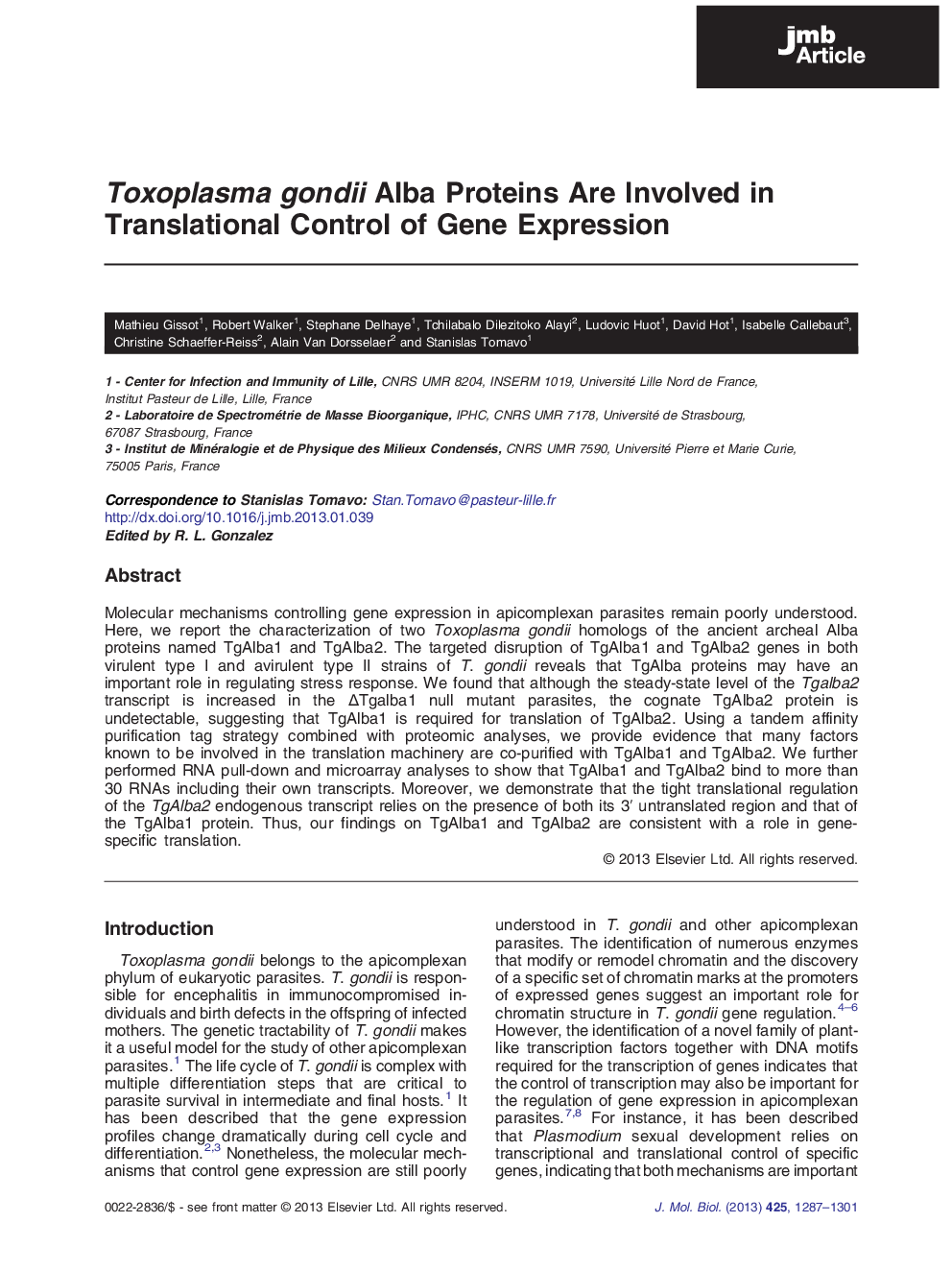| Article ID | Journal | Published Year | Pages | File Type |
|---|---|---|---|---|
| 2184478 | Journal of Molecular Biology | 2013 | 15 Pages |
Molecular mechanisms controlling gene expression in apicomplexan parasites remain poorly understood. Here, we report the characterization of two Toxoplasma gondii homologs of the ancient archeal Alba proteins named TgAlba1 and TgAlba2. The targeted disruption of TgAlba1 and TgAlba2 genes in both virulent type I and avirulent type II strains of T. gondii reveals that TgAlba proteins may have an important role in regulating stress response. We found that although the steady-state level of the Tgalba2 transcript is increased in the ΔTgalba1 null mutant parasites, the cognate TgAlba2 protein is undetectable, suggesting that TgAlba1 is required for translation of TgAlba2. Using a tandem affinity purification tag strategy combined with proteomic analyses, we provide evidence that many factors known to be involved in the translation machinery are co-purified with TgAlba1 and TgAlba2. We further performed RNA pull-down and microarray analyses to show that TgAlba1 and TgAlba2 bind to more than 30 RNAs including their own transcripts. Moreover, we demonstrate that the tight translational regulation of the TgAlba2 endogenous transcript relies on the presence of both its 3′ untranslated region and that of the TgAlba1 protein. Thus, our findings on TgAlba1 and TgAlba2 are consistent with a role in gene-specific translation.
Graphical AbstractFigure optionsDownload full-size imageDownload high-quality image (82 K)Download as PowerPoint slideHighlights► T. gondii Alba proteins are involved in gene-specific translation. ► TgAlba proteins co-localize with RNA granules and are involved in stress responses. ► TgAlba proteins bind RNA and co-purify with proteins involved in translation regulation. ► Translation of Tgalba2 depends on the presence of its 3′ untranslated region and the TgAlba1 protein.
